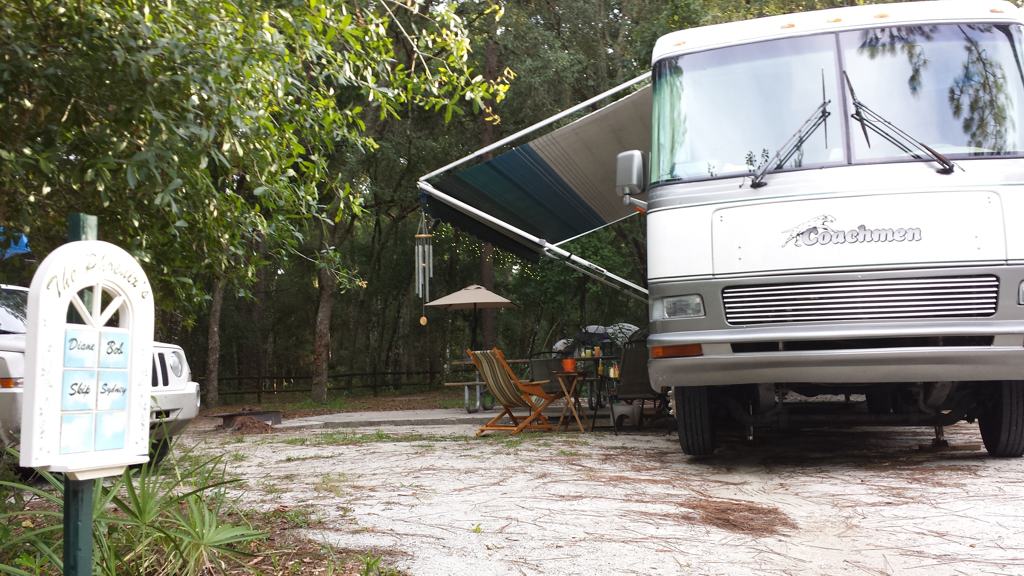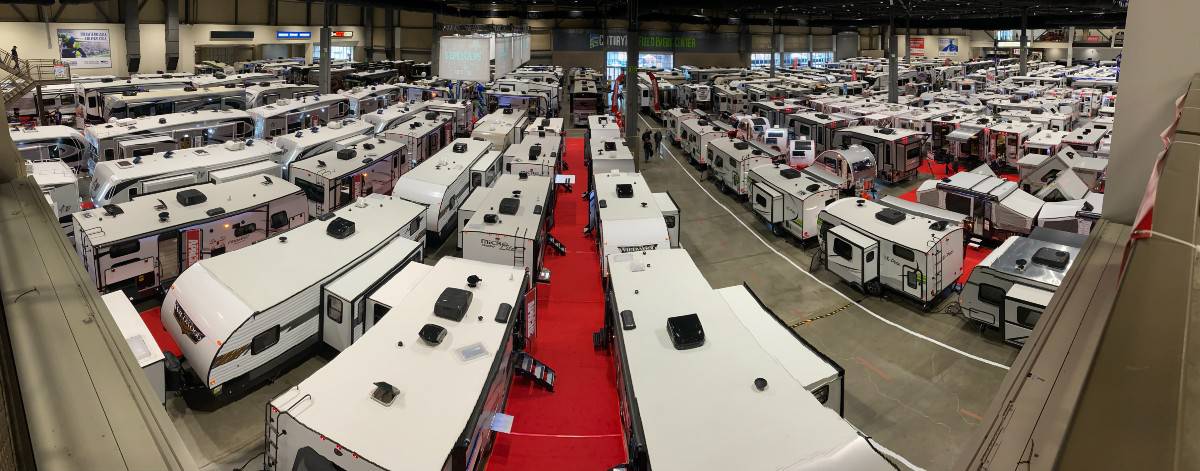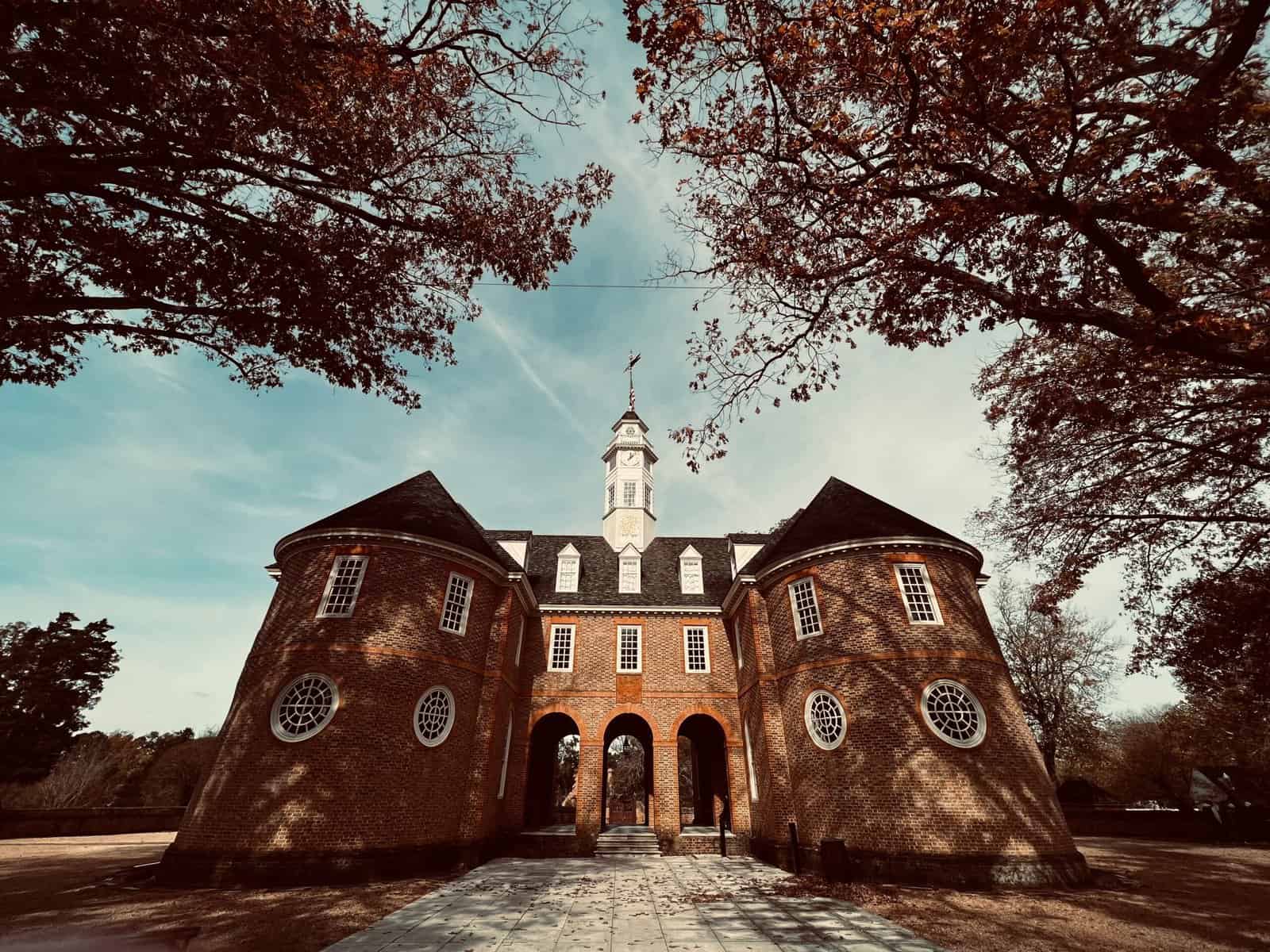RV travel is great because you always get to sleep in your own bed. But unknowingly choosing dangerous places to sleep in your RV could put your life and property at risk. That’s why even if your interior is comfortable, you have to consider your overnight parking surroundings. With that in mind, let’s discuss the top three risky places for RV travelers to park for a night or longer.
The Top Three Most Dangerous Places to Park Your RV for a Night (or Longer)
Generally, staying in a dedicated campground or RV park with amenities is your safest overnight parking choice. Some campgrounds even have gated entries to stop animals or trespassers from getting too close to campsites.
Maybe you’re on you way to a national parks adventure and you want to save money with a cheap or free overnight parking. We’ve all been there! Although there are plenty of free RV parking options, you’ll have to navigate additional hazards once you arrive.
Let’s review the top three most dangerous places to sleep in your RV, from the streets to the wilderness.
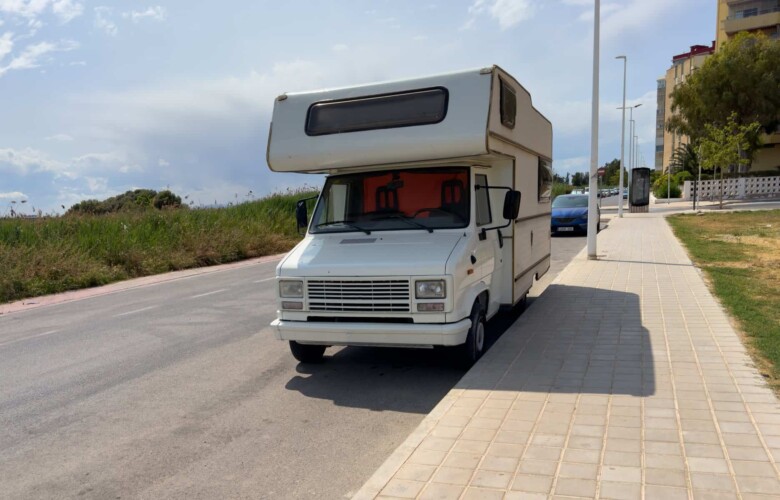
Dangerous RV Parking Spot #1: On the Street
Overnight street parking in your rig can be risky. In many places, it’s illegal to keep your camper on the street for an entire night. You could end up with a hefty fine, or even get your RV towed!
Legality aside, it’s just not a great idea to park on the street if you can avoid it.
- Potential thieves might see your RV as an easy target, especially if they think it’s empty.
- You won’t always have the benefit of security cameras from surrounding buildings either.
Instead of parking on the street, you should head for RV-friendly parking lots. For instance, it’s not uncommon to see travel trailers and motorhomes with tow vehicles parking overnight at Walmart parking lots. Truck stops are usually filled with truckers at night and can be noisy, but are usually safer than street parking.
You can also try overnight parking at other places like casinos. The national restaurant chain Cracker Barrel is also very RV-friendly. And outdoorsy big box stores like Costco, Sam’s Club, Bass Pro Shops, Cabela’s, or Camping World also have large lots that can fit your tow vehicle, too! These retail stores usually have well-lit parking lots as well as security cameras. Some even have hookups, or dump stations you can use for a small fee (sometimes they’re free, too!).
Dangerous RV Parking Spot #2: In the Wild
Some campers want to save money by boondocking or dry camping on Bureau of Land Management (BLM) land in the backcountry. The U.S. and Canada have large swathes of public land in national forests where you can park for the night, totally free of charge! But even when you find a good spot, “wild camping” comes with its own hazards.
Wild animals are one of the biggest risks of backcountry RV camping. For instance, if you set up a campsite and decide to cook after a long travel day, you might attract scavengers like raccoons, possums, and skunks. Even taking the food inside doesn’t always help because they can still smell the lingering aromas.
In the worst-case RV parking scenarios, you might even attract a bear!
Most bears have trouble getting into a locked RV, but that doesn’t stop them from trying. You might sustain major bear damage to your RV siding, doors, and windows. Plus, it’s hard to get a good night’s sleep when there’s a huge predator at your campsite.
The wild is also a dangerous place to park your RV because you tend to be isolated from other people. Dispersed wild camping can be nice if you’re looking for peace and quiet, but if nobody is around, things can quickly go south in the event of an emergency. Boondockers tend to camp far away from other people, so you won’t be able to call for help if your RV breaks down, a natural disaster strikes, or animal predators give you problems.
Dangerous RV Parking Spot #3: Risky Campsites
Another dangerous RV parking choice? Risky campsites in geologically active terrain.
Just because RVers stay in an established campground or RV park doesn’t necessarily mean that you’re safe. Some campgrounds are poorly maintained, or located in geologic hazard zones.
Be thoughtful as you select a campground and a specific site for the night. Consider these external factors that may lead to trouble.
Questions to Ask Before Choosing a Campsite
Is your site level?
An unstable campsite can lead to disaster if your vehicle starts rolling. Or, if the ground gives way. That’s because landslides are another potential danger if your site is on a slope, or located in a hilly area previously burned by wildfire. One bad rain and your RV could get wiped out.
What do your surroundings look like?
Are there many dead trees in the area? Is the foliage particularly dry or overgrown? These can be fire hazards, so you should stay away from potential kindling material. In a wind storm, dead trees can drop branches on top of your RV.
Is there water nearby?
We all love a scenic lake view or the comforting white noise of a nearby river. But bodies of water can flood in heavy rainfall. If your site is too close to the water line, you might get trapped in mud or several inches of water. Proper drainage is crucial. Always put some distance between yourself and nearby water sources.
3 Ways to Keep Your RV (and you) Safe
Between the streets, wilderness animals, and geographically risky campsites, there are plenty of places that could qualify as the most dangerous places to park your RV for the night.
But in this RV life, sometimes you won’t have much of a choice. For example, your itinerary plans might fall through. Or you may desperately need to save money. In these cases, you might have to spend a few nights in these dangerous locations!
In this case, it’s important for you to protect you and your RV from potential harm. Nobody can prepare for every eventuality, but there are some things you can do to stay safer.
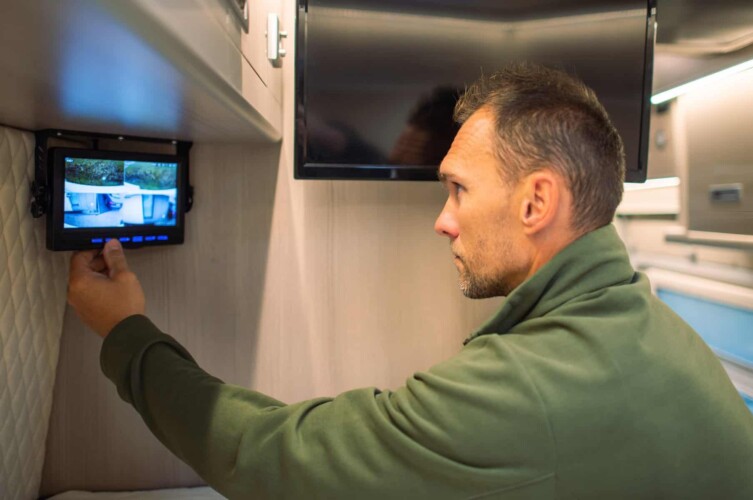
RV Parking Safety Tip #1: Buy an RV security system
For starters, invest in a top rated RV security system. This is especially helpful if you spend a lot of time camping on the streets, in rest areas, or in parking lots. Urban areas tend to have higher crime rates, so you need to protect your home on wheels.
Most security systems have cameras, alarms, and ways to contact the authorities if there’s a break-in. It’s also a good idea to upgrade the locking mechanisms on your windows. Switch to a keyless RV door lock too.
RV Parking Safety Tip #2: Take precautions against wild animals
Curious animals may visit your campsite if they smell food or other strong scents. It’s hard to deter them completely, but you can prevent damage and force them to keep their distance if you take a few precautions such as:
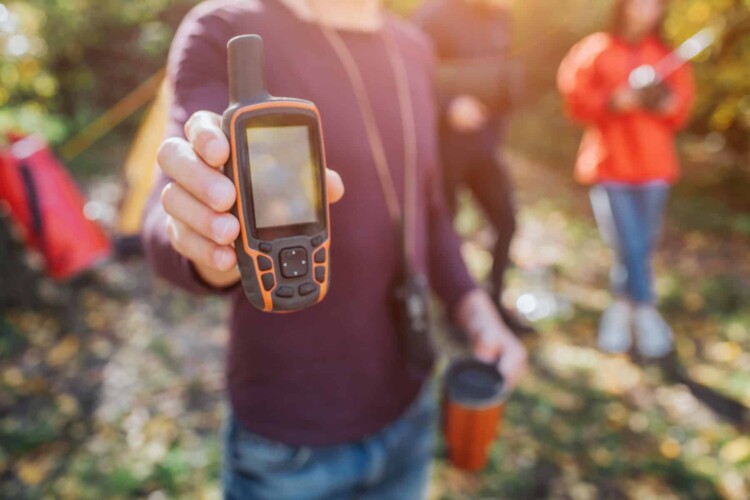
RV Parking Safety Tip #3: Have backup communication devices
Nowadays most of us rely on our smartphones for everything. And for good reason! Our phones are more powerful than ever and are getting better all the time. But if you want to camp in remote areas, you might not always have a strong cell phone signal.
If something happens while you’re camping in a dangerous place, you’ll need a reliable way to call for help. In this case, you have a few options:
- A satellite phone is a good investment. This device communicates via satellites, not cell towers. It can connect you to help when no cellular connectivity is present. They’re also quite sturdy so you don’t have to worry about breaking them.
- Buy a GPS tracker, satellite messenger device and subscription. A GPS tracking device and a host of satellite messenger devices and associated subscriptions can let you send status updates with location information and an SOS/distress option that will immediately dispatch emergency crews in the event of a life-threatening emergency.
- Upgrade to an iPhone 14. Apple’s latest smartphone has a built-in satellite messaging system feature for emergency situations.
Flares, smoke signals, and other non-electronic communication methods can also come in handy. Consider taking a wilderness survival course to learn how to use these methods.
Final Thoughts About Safer RV Parking
Camping in an RV is so much fun because you have endless options for overnight RV parking. But there are certain places like rest stops on highways that you may want to avoid. In those situations, a paid discount camping membership like Passport America really pays off. But if you can’t get to an affiliated park, you always have options. Just keep an eye out for these dangerous places to sleep in your RV, so you can make smarter decisions when you choose a place to park.
Related Articles:
- Beginner Boondocking Safety Tips
- How To Prepare For Emergencies While You’re Boondocking
- What is Moochdocking? A Guide to Free RV Parking and Etiquette Rules

